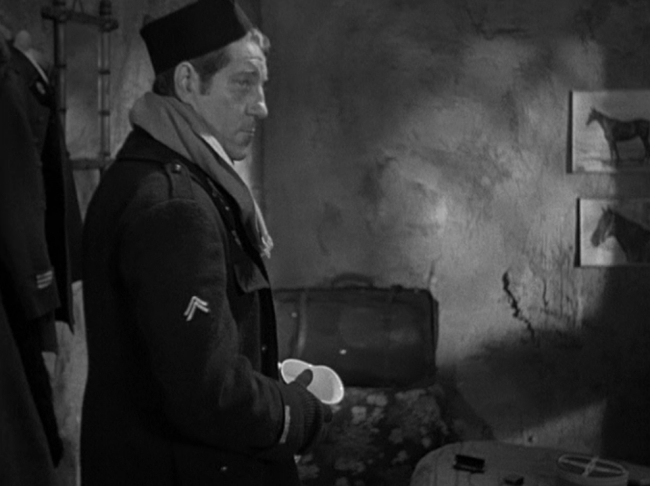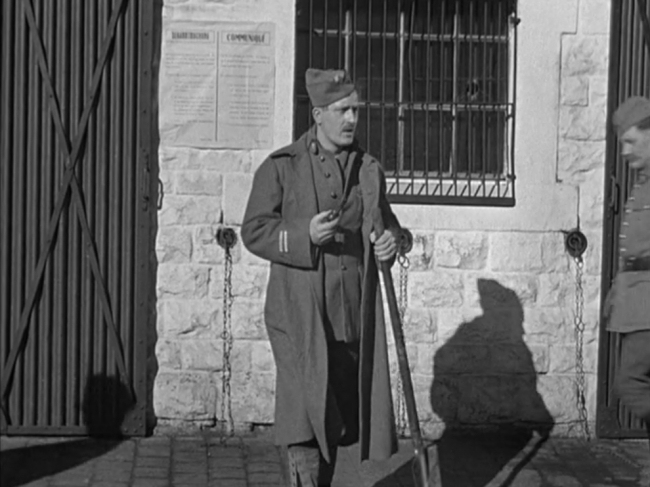The Length of an Escape Tunnel

The logic of war tends to break down on the personal level. 1937's La Grande Illusion uses a German prisoner of war camp to illustrate this. It doesn't find it necessary to make some direct, impassioned argument about how all these people have their humanity in common, it seems to just let events play out along the natural lines of human sympathy. So it's quite subtle and lovely.
A lot of credit has to go to Jean Gabin. Although it's really an ensemble film, Gabin plays the closest thing the film has to a central lead, a French lieutenant called Marechal. His charisma makes him a focal point even when he isn't framed that way in a scene.

He has a sense of honour and decency but he's not a hero or a paragon. The film resists making any of its characters too pure. One of the central relationships of the film is between the prison commandant, Rauffenstein (Erich von Stroheim), and a captured French aristocrat, Boeldieu (Pierre Fresney). Rauffenstein, also an aristocrat, feels an immediate kinship with his French counterpart. In his courteous treatment of the prisoners and of Boeldieu in particular he expresses a belief that war is antithetical to the polite society of the ancient European ruling class. The camaraderie between some of the German prison guards and the prisoners shows a discord between the war and the lower classes as well. The motivation for war is almost totally invisible. One prisoner remarks on how he hates how the German newspapers exaggerate events in the war to which Marechal points out the French papers do the same.

The movie's set in World War I, a particularly useful war for this story as the motivations behind it are infamously vague and complicated contrasted with the real, visceral suffering endured by millions of people.

Marechal eventually plans an escape with a Jewish inmate called Rosenthal (Marcel Dalio), a character whom director Jean Renoir evidently included to argue against the rising antisemitism in Europe at the time. One wonders if Renoir could have made such a film about World War II in which war crimes made the purpose of military engagement much clearer. Though, of course, in Renoir's masterpiece, The Rules of the Game, he eloquently explored the differences in how that war came about.
Le Grande Illusion is available on The Criterion Channel.